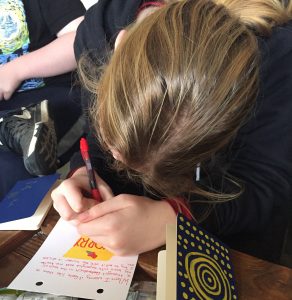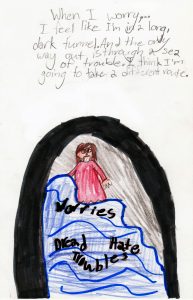RACC’s Project Grant Program provides financial support to individual artists and not-for-profit organizations in Multnomah, Washington and Clackamas Counties, for project based arts programming. Grants are awarded up to $7,000 and are available in three categories: Artistic Focus, Arts Equity & Access, and Arts Services. The following 105 Project Grants were approved on May 29, 2019 and total $565,410.
2018-19 Project Grant awards (Cycle 3):
| Applicant | Project Type | Discipline | Award |
| Allotey, Nii Ardey | Arts Equity & Access | Folk Arts | $6,120 |
| Alvarado, Amaya | Artistic Focus | Dance/Movement | $5,880 |
| Aman, Steve | Arts Equity & Access | Music | $5,600 |
| Amorin, DB | Artistic Focus | Media Arts | $6,000 |
| Anderson, Karl | Artistic Focus | Social Practice | $6,000 |
| Atwood, Evan | Artistic Focus | Media Arts | $6,300 |
| Awbrey, Olivia | Artistic Focus | Music | $6,260 |
| Brandt, David | Artistic Focus | Visual Arts | $6,300 |
| Brooks, RaShaunda | Arts Services | Social Practice | $6,300 |
| Butler-Denman, Lyra | Artistic Focus | Dance/Movement | $5,440 |
| Byrne-Seres, Spencer | Arts Equity & Access | Social Practice | $5,250 |
| Carpenter, Allynn | Artistic Focus | Visual Arts | $5,740 |
| Chang, Elea | Arts Equity & Access | Media Arts | $6,300 |
| Colligan, George | Artistic Focus | Music | $3,000 |
| Compton, Amy | Artistic Focus | Media Arts | $6,300 |
| Curington, Susan | Artistic Focus | Visual Arts | $5,530 |
| Darnell, Tiara | Artistic Focus | Media Arts | $5,790 |
| Davee, Edward | Artistic Focus | Media Arts | $6,860 |
| Díaz, Sophia | Artistic Focus | Visual Arts | $5,210 |
| Dodd, Jayy | Arts Services | Literature | $1,800 |
| Eao, Emmeline | Artistic Focus | Social Practice | $6,850 |
| Fogel, Stephanie | Arts Services | Visual Arts | $6,300 |
| Green, Cheryl | Artistic Focus | Media Arts | $5,850 |
| Hasan, Elijah | Artistic Focus | Media Arts | $5,600 |
| Henniger, Michael | Artistic Focus | Visual Arts | $3,870 |
| Holley, Kennard | Artistic Focus | Media Arts | $6,300 |
| Jacobs, Diane | Artistic Focus | Visual Arts | $6,300 |
| Jarrett, Lisa | Arts Equity & Access | Social Practice | $7,000 |
| Klauder, Caleb | Arts Equity & Access | Music | $5,250 |
| Larson, Kendra | Artistic Focus | Visual Arts | $2,650 |
| Leeb, Jordana | Arts Equity & Access | Community art | $3,100 |
| Lippert, Sophie | Artistic Focus | Music | $6,170 |
| Long, Eric | Artistic Focus | Visual Arts | $4,010 |
| Lowe, Janie | Artistic Focus | Visual Arts | $6,930 |
| Matheson, William | Artistic Focus | Visual Arts | $2,260 |
| Matlow, Cambria | Artistic Focus | Media Arts | $5,600 |
| McGeorge , Megan | Arts Equity & Access | Music | $5,060 |
| McNamara, Jason | Artistic Focus | Literature | $4,950 |
| Mefford, Benjamin | Artistic Focus | Visual Arts | $2,880 |
| Mehta, Jessica | Artistic Focus | Multi-Discipline | $5,220 |
| Milholland, Lola | Artistic Focus | Multi-Discipline | $5,380 |
| Miller, Emily | Artistic Focus | Visual Arts | $3,580 |
| Miller, Grant | Artistic Focus | Theatre | $5,600 |
| Mitchell, S. Renee | Arts Equity & Access | Multi-Discipline | $6,930 |
| Morris, Elise | Artistic Focus | Dance/Movement | $5,890 |
| Moscoso, Jose | Artistic Focus | Social Practice | $6,290 |
| Moss, Eva | Artistic Focus | Media Arts | $6,300 |
| Onstott, Cosper | Arts Services | Literature | $6,300 |
| Phillips, Mo | Artistic Focus | Theatre | $4,010 |
| Rengill, Elilai | Arts Equity & Access | Multi-Discipline | $4,980 |
| Rier, Erika | Artistic Focus | Visual Arts | $1,240 |
| Ripper, Karina | Artistic Focus | Media Arts | $7,000 |
| Roushan, Raziah | Arts Equity & Access | Visual Arts | $6,570 |
| Singh, Anupam | Artistic Focus | Social Practice | $5,850 |
| Solunaya, Reina | Arts Equity & Access | Media Arts | $6,300 |
| Stevens, Melanie | Artistic Focus | Visual Arts | $3,800 |
| Stigant, Mandy | Artistic Focus | Visual Arts | $4,930 |
| Strand, Julie | Artistic Focus | Literature | $7,000 |
| Syharath, Samson | Artistic Focus | Dance/Movement | $4,500 |
| Tiedemann, Sarah | Artistic Focus | Music | $4,930 |
| Tillman, Kai | Artistic Focus | Media Arts | $6,950 |
| Trask, Kirista | Artistic Focus | Visual Arts | $4,490 |
| Trujillo, Juan | Artistic Focus | Media Arts | $5,600 |
| Turner, Sarah | Artistic Focus | Media Arts | $5,250 |
| Vivian, Chanel | Artistic Focus | Literature | $5,560 |
| Whitworth, Joni | Artistic Focus | Multi-Discipline | $5,600 |
| Wilson, Dan | Artistic Focus | Music | $5,260 |
| Yanke, Erin | Artistic Focus | Media Arts | $5,500 |
| Advance Gender Equity in the Arts | Artistic Focus | Theatre | $3,680 |
| APANO (Asian Pacific American Network of Oregon) | Arts Equity & Access | Multi-Discipline | $7,000 |
| Artback | Artistic Focus | Visual Arts | $4,500 |
| Bach Cantata Choir | Artistic Focus | Music | $5,480 |
| Beaverton Civic Theatre | Arts Equity & Access | Theatre | $6,260 |
| Bedrock Theatre | Artistic Focus | Theatre | $1,500 |
| c3:initiative | Artistic Focus | Visual Arts | $6,300 |
| Community Vision | Arts Equity & Access | Visual Arts | $2,250 |
| Design Museum Portland | Arts Equity & Access | Multi-Discipline | $5,600 |
| Division Midway Alliance | Arts Equity & Access | Multi-Discipline | $4,800 |
| Fear No Music | Artistic Focus | Music | $6,400 |
| Fonograf Editions | Artistic Focus | Multi-Discipline | $6,280 |
| Fuller Rosen Gallery | Artistic Focus | Visual Arts | $1,850 |
| Fuse Theatre Ensemble | Artistic Focus | Theatre | $6,230 |
| Girls Inc of the Pacific NW | Arts Equity & Access | Media Arts | $5,250 |
| Latino Network | Arts Equity & Access | Media Arts | $4,970 |
| Montavilla Jazz Festival | Artistic Focus | Music | $3,600 |
| Native American Youth and Family Center | Arts Equity & Access | Multi-Discipline | $6,300 |
| Northwest Classical Theatre Collaborative | Arts Equity & Access | Theatre | $6,300 |
| Opera Theater of Oregon | Artistic Focus | Music | $5,400 |
| Oregon Jewish Museum and Center for Holocaust Education | Arts Equity & Access | Social Practice | $6,980 |
| Our Bold Voices | Arts Equity & Access | Multi-Discipline | $5,020 |
| Portland Japanese Garden | Artistic Focus | Visual Arts | $5,600 |
| Portland Latin American Film Festival | Artistic Focus | Media Arts | $7,000 |
| Portland Meet Portland | Arts Equity & Access | Music | $5,600 |
| Portland SummerFest | Arts Equity & Access | Music | $5,600 |
| Portland Tango Association Inc | Arts Services | Dance/Movement | $5,600 |
| push/FOLD | Artistic Focus | Dance/Movement | $5,250 |
| Q Center | Arts Equity & Access | Media Arts | $5,360 |
| Shine Children’s Chorus | Artistic Focus | Music | $5,860 |
| Signal Fire | Artistic Focus | Literature | $6,870 |
| Slavic Community Center of NW | Arts Equity & Access | Folk Arts | $6,260 |
| Takohachi | Arts Equity & Access | Music | $6,240 |
| Water in the Desert | Artistic Focus | Multi-Discipline | $7,000 |
| Westside Youth Choir | Arts Equity & Access | Music | $1,910 |
| Willamette Writers | Arts Services | Media Arts | $6,590 |
| World Arts Foundation, Inc. | Arts Equity & Access | Multi-Discipline | $7,000 |


